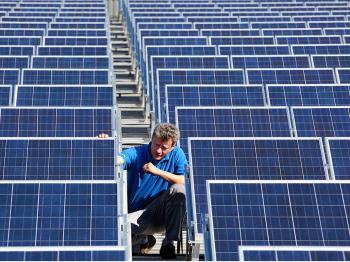We used to see it as a time when great technological advancements in many fields such as medicine, agriculture, transportation, energy production, and the manufacturing of electronic devices for productivity or entertainment would solve many of world’s problems. People would live longer and more comfortably.
Why haven’t we seen changes like these to the extent that we once imagined?
The year 2000 is almost 10 years behind us and although we have made many advancements, the world today remains more similar to how it has been over the past 30 years rather than to what we used to envision the “future” would be like.
For example, cars have become more streamlined, aerodynamic, and they offer more features, but a car is still just a hunk of metal and plastic on four rubber wheels that we have to drive ourselves and put gas into.
This is the same case with the movement to protect our planet and become more environmentally friendly. For example, sanctions have been placed on factories that burn fossil fuels to take measures to reduce the amount of pollutants they expel into the air, and the automotive industry now has to design cars to emit lower levels of carbon dioxide and carbon monoxide.
Although these changes seem good on the surface, when we really look at the big picture, we see that cars and factories are still polluting—just to a lesser degree. It’s like smokers who think they can avoid cancer or other health problems related to smoking by switching to cigarettes with lower tar and nicotine. They are only prolonging the inevitable.
Why, in 2009, have we not seen a movement toward eliminating greenhouse gases instead of just reducing them?
Many of these major polluters have taken the steps they needed to reduce the levels at which they were polluting, but it’s already almost 2010, and so far, there is no indication they will stop polluting unless they are forced to.
We can be proud to be Americans because we do take the lead in many positive endeavors. Unfortunately, there are other endeavors that aren’t so positive. For example, we are a world leader in the contribution of greenhouse gases. Since technology has existed for over 50 years to build cars that run on electricity, solar power, or quite a number of other renewable and cleaner fuels, why—in 2009—are car manufacturers still making cars that need to burn gas?
As many things change, many remain the same. I ask these rhetorical questions in the hope that more people will begin asking questions like these.
The thing is, these questions have already been asked to the people who have the power to make viable changes. Lengthy conversations and heated debates take place, environmental impact studies are done, and meetings are conducted. In the end, the ultimate deciding factor always seems to be money. Why?



